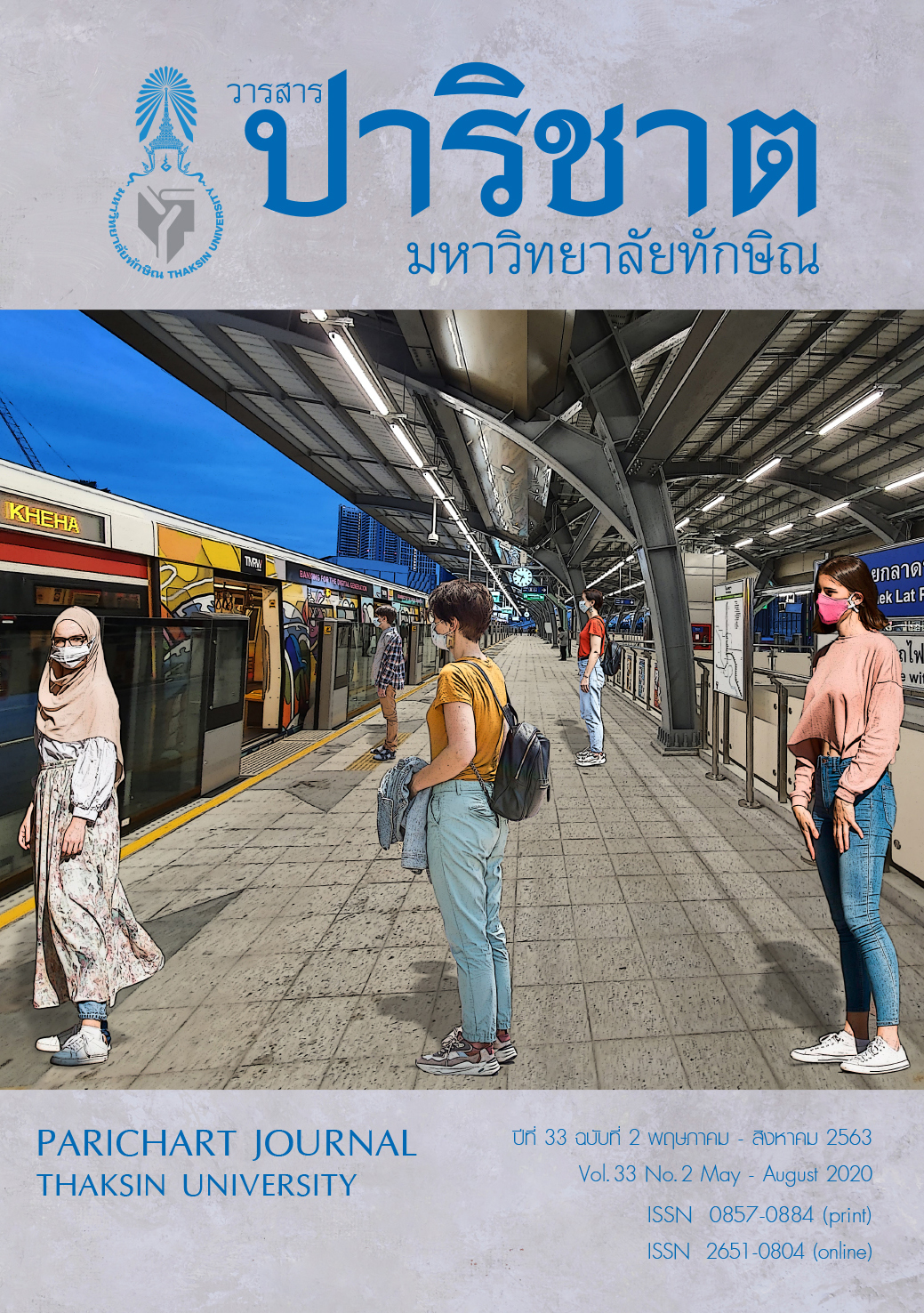The Public Expectations toward Peace and Reconciliation by Local Government Organization Empowerment in Southern Border Province
Main Article Content
Abstract
This objectives of this research article were to study the public expectations toward peace and reconciliation by local government organization empowerment in southern border province and present role of local government organization to conflict management base on reinforce to the peace and reconciliation in southern border province. The mixed research methodology; quantitative research was collected data by questionnaire of public expectations from 398 persons. The descriptive used were frequency, percentage, mean and standard deviation. The qualitative research was conducted by servey documents, In-depth interviews with 12 persons consisted of experts; local government administrators, Village headman and civil society network.Analytic induction method was content analysis and interpretation with context analysis. The research was found that the overall the public expectations toward
peace and reconciliation by local government organization empowerment in southern border province at a high level (x̅ = 4.18, s.d.=0.72). Considering each aspect ordered from the highest to the least; Economic development, Investment and commerce, Supporting to human resource development and social empowerment, Promoting of natural resource and environmental conservation, encourage of management and good governance into practice, Justice and fairness facilitation. Respectively. In addition to findings, The local government organizations had roles change of operation to conflict management in southern border province by drive mechanism cooperation for peace and reconciliation with based on public service to supporter roles for sustainability conflict management.
Article Details
References
Lapie, A. (2019). Discursive Struggles between State and Local of Conflict Management in the Three Southern Border Province. Dissertation. Chonburi: Burapha University.
Puangam, K. (2009). Thai Local Government: Principle and Dimension in the Future. (9th Ed.). Bangkok: Winyuchon.
Vroom, V. H. (1970). Work and Motivation. New York: John Willey & son.
Worathanphasuk, N. (2014). Proposed Process for Community Empowerment yo Strengthen Peace and Reconciliation for Local Authorities. An Online Journal of Education, 9(2), 282-296.
Ministry of Finance. (2000). Determining Plan and Procedures in Decentralizations to the Local Administrative Organization B.E. 2542. Bangkok: Ministry of Finance.
Yamane, Taro. (1973). Statistics: An Introductory Analysis. New York: Harper and Row Publication.
Srisa-ard. B. (2000). Introduction to Research (7th Ed.). Bangkok: Sureeviya Sarn.
Bloom, Benjamin S., et al. (1971). Hand book on Formative and Summative Evaluation of Student Learning. New York: Mc Graw-Hill Book Company.
Zimmerman, M.A., & Rappaport, J. (1988). Citizen participation, perceived control, and psychological empowerment. American Journal of Community Psychology.
Yooyuen, K. (2016). People’s Expectation on Public Administration of Samtum Sub-district Administrative Organization Sena District in Phra Nakhon Si Ayutthaya. Pathumthani University Academic Journal. 8(1), 172-180.
Pratuangboriboon, N. (2017). Koh-Kha Model: The Strategy for Balanced Local Administration in the Twenty-First Century. Journal of Graduate Studies in Northern Rajabhat Universities, 7(12), 15-28.
Elmore, R.F. (1979). Complexity and Control: What legislators and Administrators can do about Implenmentation. Public Policy Papers No. 11. Institue of Governmental Research, University of Washington.
Visupi, W. (2017). The role of local communities to propel Thailand to model 4.0. Retrieved April 5,2018 from https://www.sites.google.com/a/life.ac.th/main/bthkhwamwichakar/bthbathchumchnthxngthnkabkarkhabkheluxnsumodelprathesthiy40.
Jitpiromsri, S., Sugunnasil, W., & Sowana, A. (2010). Developing Policy Analysis Models for Violence Resolution throuhg Socio-economic, Demographic Database Systems. Bangkok: National Research Council of Thailand.


